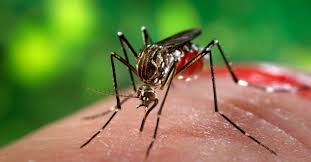In a groundbreaking clinical trial, the University of Notre Dame, in collaboration with Unitaid, has announced that the innovative malaria control tool, Mosquito Shield, has shown a significant reduction in malaria transmission. The results, published in The Lancet, demonstrate that the spatial repellent, when used alongside insecticide-treated nets, reduced first-time and overall malaria infections by one-third (33.4% and 32.1%, respectively), compared to a placebo product.
This marks the first trial to showcase the effectiveness of spatial repellents in malaria prevention and represents a major step forward in global malaria control. The trial’s success is seen as a critical advancement towards a potential World Health Organization (WHO) recommendation for the use of spatial repellents, which could become a new class of vector control tools.
“This is a powerful result,” said Dr. Bernard Nahlen, Professor of Biological Sciences and Director of the Eck Institute for Global Health at Notre Dame. “There is no magic bullet for malaria, but a one-third additional decrease in transmission on top of mosquito nets could translate into tens of thousands of lives saved each year.”
The Mosquito Shield product, developed and manufactured by SC Johnson, was tested in Busia County, Kenya, an area with high malaria transmission despite widespread use of insecticide-treated nets. The region faces challenges from mosquitoes that prefer feeding on humans and biting indoors, with growing resistance to traditional insecticide-based methods.
Unlike traditional mosquito repellents, Mosquito Shield works by slowly releasing an active ingredient from a wall-mounted device that repels and immobilizes mosquitoes. This new tool was not intended to replace insecticide-treated nets but to complement them, reinforcing malaria prevention efforts in areas with ongoing transmission.
The trial findings suggest that for every 100 people using Mosquito Shield, around 60 malaria infections could be prevented annually, showing its potential as a powerful addition to the existing toolbox for combating malaria.
“Unitaid is proud to have supported the AEGIS trial,” said Dr. Philippe Duneton, Executive Director of Unitaid. “These results mark a major advance in malaria control and could lead to the first new class of vector control tool in decades.”
The trial, conducted under the Advancing Evidence for the Global Implementation of Spatial Repellents (AEGIS) project, was led by Notre Dame in partnership with SC Johnson. In addition to Kenya, trials are also underway in Mali and Sri Lanka, evaluating the efficacy of Mosquito Shield against malaria and dengue.
The Kenyan Ministry of Health has already taken steps to incorporate spatial repellents into the national malaria control strategy. With malaria rates in certain regions of Kenya remaining alarmingly high, particularly in Busia County, these new tools could provide vital support to ongoing efforts to combat the disease.
“We have made enormous strides against malaria in Kenya, but areas like Busia County experience rates of malaria that mirror countries with the highest burdens,” said Prof. Elijah Songok, Acting Director General of KEMRI. “This new tool is essential for people in these high-risk areas.”
The WHO review of the Kenya trial results in March 2024 will determine whether Mosquito Shield can be recommended as a new class of vector control tool for malaria. Should the evidence meet WHO standards, Mosquito Shield could help shift the global approach to malaria prevention.
The findings represent a promising step forward in the battle against malaria, offering hope for more effective, diversified strategies in high-burden regions.












